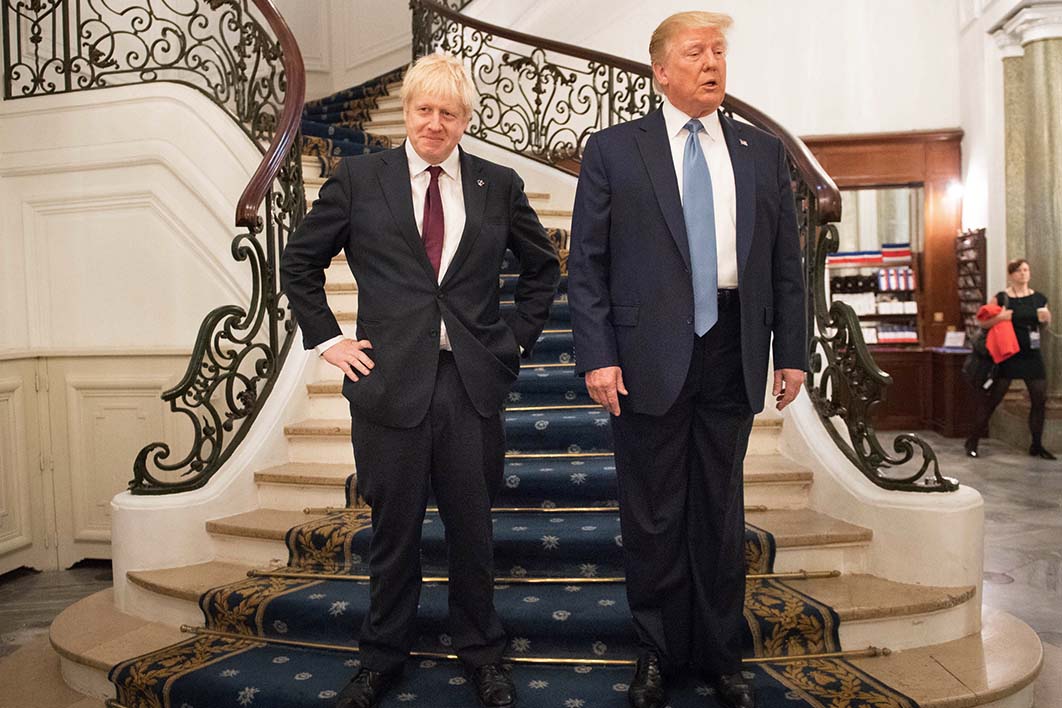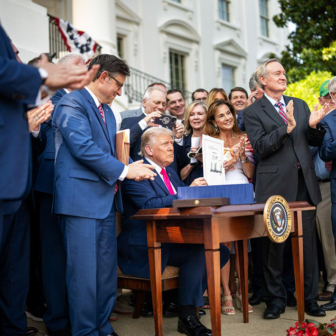We live in a time of “populism.” It’s “populism” this and “populist” that. Brexit in June 2016, Donald Trump in November. Marine Le Pen’s progress to the second round of France’s presidential election the following year.
Then there’s the failed Italian referendum to curb the powers of that country’s Senate, also in 2016. Talk about populism! But Australians need only imagine such a vote in Australia, at any time, to see how dubious that classification is. A referendum to allow our House of Representatives to expand without a proportional growth in the Senate crashed badly way back in 1967.
This year, our own Morrison miracle was described by the New York Times as “another swell in the wave of populist fervour that swept President Trump into office and set Britain on a path out of the European Union.” A centre-right government winning re-election on a ferocious scare campaign about taxes and spending — is this something new?
That’s not to say the upsurge in “populism” is imaginary. The old centre has been collapsing across advanced democracies for years, and was accelerated by the global financial crisis. Many voters no longer seem happy to eat their greens when instructed. The result in Europe has been the rise of far-right — and, to a lesser extent, far-left — parties.
But populist gains usually strike a blow against business as usual, which is another reason why our May 2019 election doesn’t fit.
What Trump, Brexit and Australia 2019 do have in common are failed opinion polls. Before each of those votes, the final polls were out by several per cent. At most elections this would go unnoticed, but not when the error reverses the outcome. The 2017 British election was also a bit of an opinion poll miss; the pollsters picked the late movement to Labour but most of them missed its size. British pollsters had got 2015 wrong as well, seeing a neck-and-neck Tory–Labour result rather than the big Conservative win that eventuated.
They’ll do much better on 12 December. Of course they will.
The poor polling added ballast to a crucial component of the “populist” narrative: that “the elites” are misreading the people. The surveys pointed to one thing, but “the voters” didn’t follow the script. Hoorah! Score one against the establishment.
In the annals of “populism,” our 2016 election result was actually a better-qualified entry than this year’s. Like Jeremy Corbyn’s 2017 stunner, election night went against the tide of expectations. The Coalition won the national vote by only 0.7 per cent and barely kept its majority. The polls did get the aggregate vote about right, but general expectations (well, mine anyway) were that they had understated likely Coalition support or that those figures would translate into a bigger seat win for the Coalition. Sitting federal governments tend to do well in the vote–seat trade-off. But not that time.
These unexpected results have an important feature that doesn’t neatly fit with the popular takes. It wasn’t just “the elites” who got a shock. The hoi polloi were astonished too. They approached the ballot box (and, outside Australia, decided whether to bother voting) with expectations that made some of them feel reckless, and free to throw the dice (and others to stay at home because the result was in the bag).
In 2016 it was Labor that benefited from these lost-cause expectations, with few people contemplating the prospect of Bill Shorten emerging as prime minister. For some, the option of putting the government in its place with a spot of protest voting was hard to resist.
Shorten certainly didn’t enjoy that advantage in 2019, when he and his policies came under scrutiny so fierce it veered at times into fiction.
There’s also a big difference between Brexit and Trump. Surveys and election returns showed that most Brits on low incomes voted to leave, and most Remainers were better off. Trump, by contrast, won greatest support among high-income Americans, while most poorer people voted for Hillary Clinton.
That might surprise some, but it was a presidential election, after all, and Trump received the votes of the vast majority (about 90 per cent) of registered Republicans who turned out. Clinton got most (also around 90 per cent) of the Democrats who voted. What was decisive were the low-income swings to Trump and the high-income (smaller) swings to Clinton, compared with the 2012 election. Holding everything else constant, the low-income swing probably decided the result.
Brexit, on the other hand, was just a plebiscite on a topic that most people had barely contemplated until the vote was announced. That’s quite different from an election, when people decide who they want to rule over them for three years and party loyalty still plays a big, if declining, part.
Our own 2017 marriage-equality survey produced a similar income split to Brexit, as did the republic referendum two decades ago. High-earning urban folks mostly voted Yes, while low-income outer-suburbanites and people outside the capital cities were more likely to vote No. For most, it was a tenth-order issue.
Our marriage survey romped home, yet our republic referendum had failed. Like Brexit, that result brought forth a lot of crowing about out-of-touch elites, and about how Labor was estranged from the ordinary, unpretentious, salt-of-the-earth types it’s supposed to represent.
But these commentators’ fetishisation of people power tends to be conditional. You might recall their querulous pre-election columns this year about the reckless Australians who appeared so easily bribed by Labor’s magic pudding of spending promises. As the recent Victorian election had already shown, they lamented, the system was now rigged against any party of economic responsibility. But faith in humanity was quickly restored on election night. The voters always get it right, after all.
Here’s a thought. Imagine the Australian government suddenly decided to hold a plebiscite on quitting the refugee convention? That would be a decent equivalent of Brexit. Or leaving the World Trade Organization, or undoing all free-trade agreements? Maybe tariffs should be reimposed to revive our manufacturing industry? Get rid of the GST and make everything 10 per cent (actually 9.1 per cent) cheaper — how good would that be?
We don’t know how votes on these and other facets of the cosy bipartisan political-technocratic consensus would go. (The GST, despite Labor’s cynical opposition at two elections, is bipartisan policy.) You can be sure it would pit the cosmopolitan “insiders” against the “outsiders,” inner against outer urban, urban against regional, “elites” against “real Australians.”
Some might even get through, in which event there’d be lots of gloating. Just not necessarily from the usual suspects.
Populism can cut both ways. •





